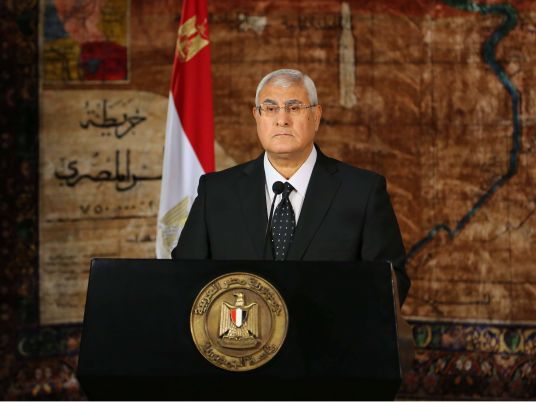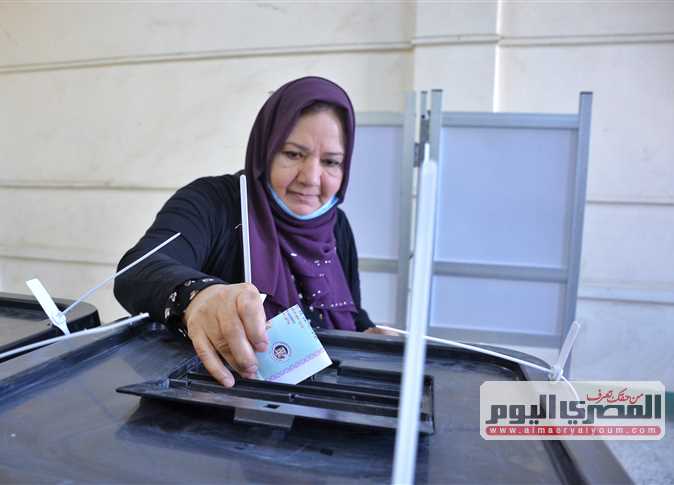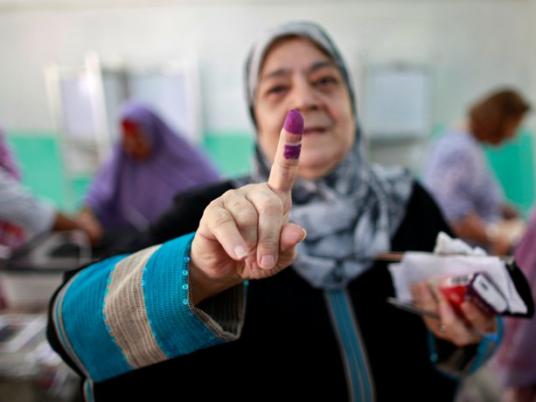
Party leaders both welcomed and rejected the decision announced by interim President Adly Mansour to conduct presidential elections before parliamentary elections.
The decision was made in an attempt to meet popular demands and as well as those of many political parties during their meetings with the interim president.
Former MP Mostafa Bakry argues that the president has thereby responded to the demands of the political forces and the community, expecting Defense Minister Abdel Fattah al-Sisi to announce his candidacy. “Egypt is advancing with its the roadmap while America and its agents are blinded and still dreaming about the return of Morsy,” he said.
“I salute the president for taking the decision we have been calling for since the first constitutional declaration,” tweeted Hossam Moanes, spokesperson for the Popular Trend. “This is the first step for the revolution to be in a position of authority in the face of attempts to abort it.”
Other groups, however, such as April 6 Movement and the Nour Party have said in the past they would reject the move, as the decision veers from the original democratic roadmap that was set out at the 3 July ouster of former President Mohamed Morsy, which stated that parliamentary elections would be held first.
“If we start with the presidential elections, we will grant the new president both legislative and executive authorities,” Salah Abdel Maqsoud, one of the party's leaders, told Egypt Independent. “We are going to repeat the same scenario that took place during the rule of former president Mohammed Morsy.”
Mohammed Moustafa, the spokesman of April 6 Movement also expressed concern over the move. “The roadmap said that parliamentary elections should be first,” he added. “If we start with the presidential elections, it will be in direct violation of the roadmap, which will cause chaos in the political scene.”
Nonetheless, Tagammu Party leader Refaat al-Saeed praised the decision, adding: “We need stability to confront violence and terrorism, and I think decision is a new step forward.”
Deputy head of the Egyptian Democratic Party Fareed Zahran said the decision was expected as holding the presidential elections first was a popular and political demand.
“What is more important now is the constitutional basis for that decision so as not to be challenged later.”
Assistant Secretary General of the Wafd Party Hossam al-Khouly also stressed that the decision met a popular and political demand, saying Egypt needs an elected president to confront violence.
Ambassador Sayed Qassem, head of the Constitution Party, said the decision was wise in light of the deteriorating economic and social conditions, which require the presence of an elected president.
The decision represents the demands of the national forces since the revolution of 25 January to set a Constitution, then hold presidential elections and parliamentary, he added.
Qassem stressed that the decision would back stability and unite Egyptians.
"The president's decision rescued the state from collapse and made Egyptians avoid the dangers of partisanship and tribalism in case the parliamentary elections were held first," he said, adding the parliamentary elections are usually more intense than the presidential.
The Egyptian National Movement deputy head Yahya Qadry described the decision as wise, adding represented all the Egyptian people.
The terrorism faced by state institutions in squares require an elected president atop the state, he said.
Free Egytians Party spokesperson Shehab Wageed praised the decision saying he responded to the demands of youth during meetings to hold the presidential elections first.
Nour Party Assistant Secretary General Shaaban Abdel Alim praised the president’s other decision to increase the number of judicial constituencies. “There are thousands in the prisons waiting for trial,” he told ONTV.
Hafez Abu Seada, head of the Egyptian Organization for Human Rights, also told ONTV that the government would have to amend the law on political rights that says candidates must obtain the approval of 20 parliamentarians, as there is no parliament at the moment. “The next president can be sworn in before the General Assembly of the Constitutional Court as Morsy did,” he explained.
Edited translation from Al-Masry Al-Youm




